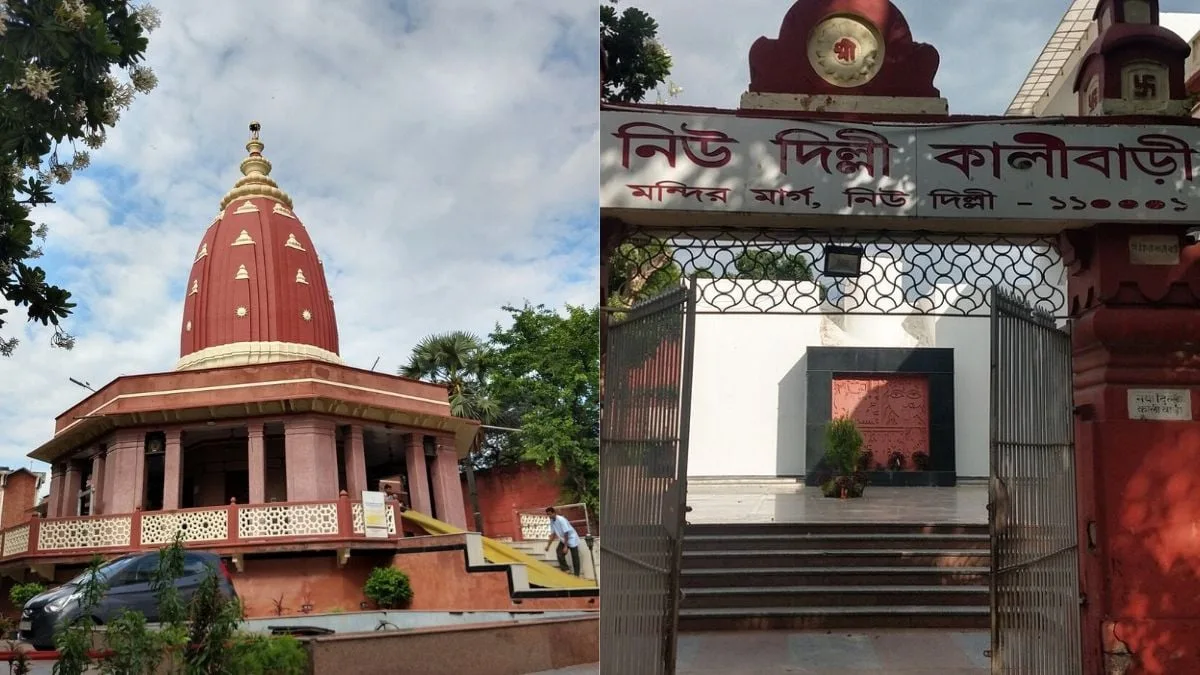During Diwali, some communities praise goddess Kali as per a vision by Bengali saint Krishnananda Agamvagisha in the 16th century. The worship originated in the 17th century and became popular in the 19th century because of the impact of Kali devotee Sri Ramakrishna Paramahangsha.
Kali was first venerated as a deity of the tribes and then absorbed into the broader Hindu religion. She is commonly seen as the supreme truth and sacred guardian in Shakti and tantric groups. One well-known tale tells of Kali overpowering the demon Raktabija by consuming his blood to stop his ability to regenerate. Kali's protruding tongue indicates her awareness of her actions in combat.
In general, Kali plays an important role in Hindu mythology, symbolising power, safety, and freedom. The celebration of Kali has grown to be the second most important event for the Bengali people, after Durga Puja.
Kali Puja, well-known in Bengal, was introduced to Delhi in the 19th century by saint Sri Krishnananda Brahmachari, who established 32 Kalibaris in northern India. The initial Kalibari in Delhi was founded in 1840 close to Yamuna's Nigam Bodh Ghat but was demolished during the 1857 Sepoy Mutiny. With the assistance of Dr. Hemchandra Sen, Sri Neelmani Brahchari fixed the idol and placed it back in Roshan Pura.
Know Why Dhanteras Is Celebrated; All About History & Significance Of First Day Of Diwali
In 1917, the first Kalibari was established near Tis Hazari Maidan in Delhi, where the deity is worshipped to this day. This community also established the oldest Durga Puja in Kashmere Gate, Delhi. The Bengali community comes together at Tis Hazari Kalibari in Delhi to celebrate Kali Puja on Diwali night.
Additional Kalibaris were founded as time passed, including one close to Bangla Sahib Road in 1925, later relocated to its present site near the Birla Temple. In 1984, artists from West Bengal designed a Kali temple with Bengal terracotta architecture in CR Park, a mini-Kolkata in Delhi.

Kali Puja is observed during the time of the new moon at night, commencing at 11.25 pm and continuing until 01.01 am. Following the puja, believers receive fruits, desserts, and offerings such as khichdi and kheer. In the past, there were religious sacrifices, but they have become uncommon, although some locations still include meat in the bhog.
Religious sacrifices are still performed at the 300-year-old Thanthania Kalibari in West Bengal. Kali can also be worshipped through tantric rituals at the cremation ground, where she is regarded as a form of Shakti and connected with Shiva.
Kali, also known as Shamshan Kali, is thought to guard the cremation site and provide assistance with dark magic problems if she is revered. She is an alternative form of Durga and is strongly connected to her spouse Shiva, who is shown wearing ashes from the cremation site.

